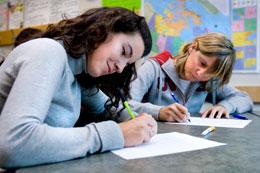Back to school for B.C. post-secondary students

Guest Commentary
By Andrew Wilkinson
Minister of Advanced Education
Whether you are young or not-so-young, a new or returning student, from Canada or an international student, it is a great idea to study at one of our outstanding public post-secondary institutions in British Columbia.
Each of the 430,000 post-secondary students studying in the province this September has a range of options, in our affordable and accessible post-secondary education system.
Our government has a range of programs and assistance available for students to achieve their education and career goals such as student financial aid, more seats at more post-secondary campuses, and help for students to get skills for in-demand jobs.
Post-secondary education offers a great return on investment, whether it is a certificate, diploma, trades qualification or degree, as well as a sense of accomplishment and personal achievement. Our government invests $1.8 billion annually – or $5 million every single day – to deliver high-quality, affordable and accessible public post-secondary education and training.
My first priority as Minister of Advanced Education was to meet students, faculty and staff at every public post-secondary institution. Students at all 25 public post-secondary institutions impressed me with their knowledge, their goals and their passion for learning.
Our government has taken steps to ensure that tuition is affordable, including introducing a policy in 2005 limiting annual tuition increases to 2%. On average, B.C. students pay less than one-third of the cost of their education, and undergraduate students pay the fourth-lowest average tuition in Canada at $5,118 annually.
For students who need financial assistance, a mix of grants and loans is available to help them to fund post-secondary education, and programs are in place to help students reduce their debt faster.
To make post-secondary education more affordable, British Columbia was the first province in Canada to launch a government-sponsored open textbook project. By this fall, approximately 8,000 students in B.C. are expected to have saved up to $1 million with open textbooks. Post-secondary students and instructors in B.C. will be able to use more than 120 free open textbooks as dozens of new skills training titles are released this fall.
Post-secondary education is also more readily available. Our government has made more post-secondary seats available in more regions of the province, with 32,000 new student seats and seven public university campuses added to the public post-secondary system since 2001. This means students have many options if they choose to stay in B.C. – and even stay in their hometowns – for their studies, helping keep their costs down and allowing them to more easily pursue career opportunities in B.C.
Post-secondary students in B.C. can readily move between institutions, programs and regions as they pursue their education and training, thanks to the most comprehensive credit transfer system in Canada. The BC Transfer System involves 38 public and private universities, colleges and institutes. It enables students to move from one institution to another and receive credit for previous applicable course work, giving them flexibility to complete their studies.
As our economy grows, there will be thousands of job openings in various occupations. More than 78% of these openings will require post-secondary education. These jobs range from professions to skilled trades to management. To ensure that British Columbians have the training and skills needed to take advantage of these opportunities, our government launched B.C.’s Skills for Jobs Blueprint in April 2014. Thousands of students who are taking courses this fall – from critical trades to health care to business administration – are able to do so as a result of targeted funding for high-priority occupations.
Government has also developed a number of programs to make post-secondary education more accessible to Aboriginal people. For example, the Aboriginal Post-Secondary Education and Training Framework and Action Plan – developed in collaboration with Aboriginal post-secondary partners – will improve post-secondary opportunities and outcomes for Aboriginal learners. We are seeing success with more than 3,200 credentials awarded to Aboriginal students in 2013-14, an increase of 23% since 2009-10.
British Columbia has taken great strides in making post-secondary education affordable and accessible for students of all backgrounds. Our government works with students, institutions and employers to provide research, education and training to position our diverse workforce for con









